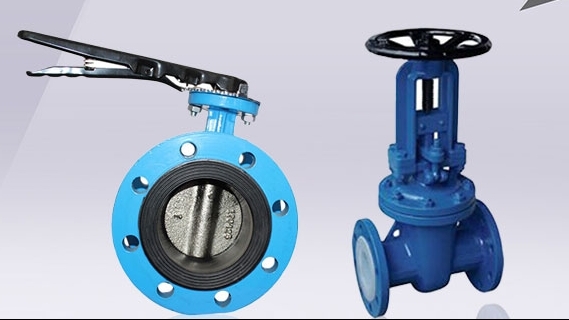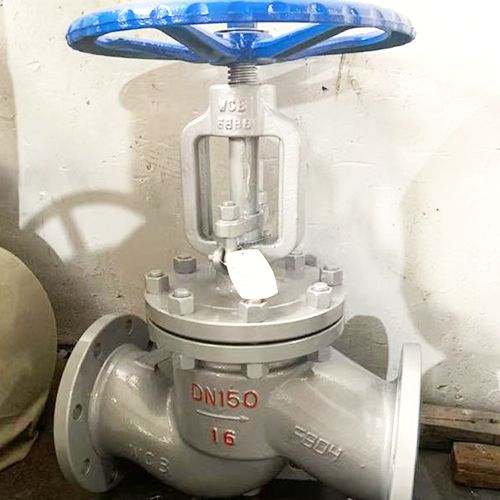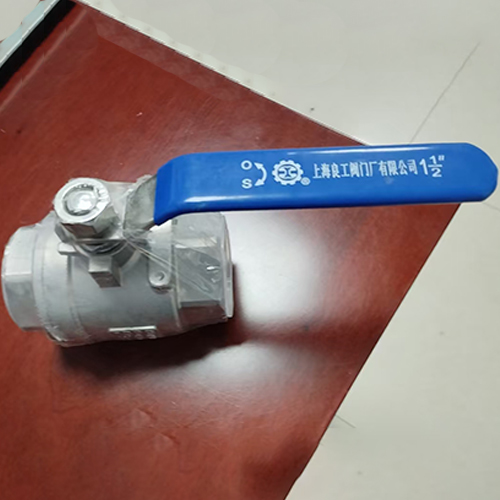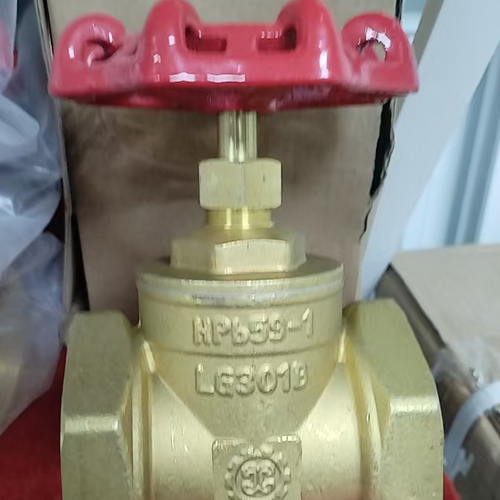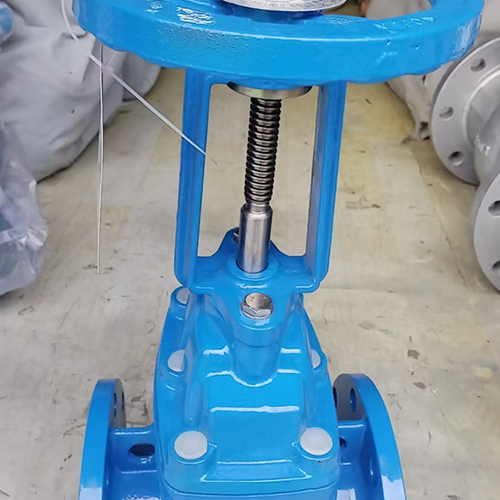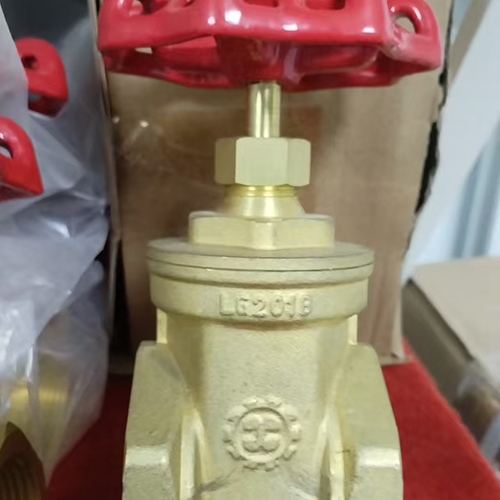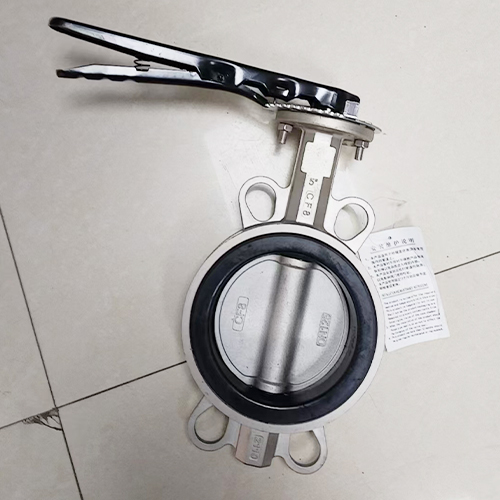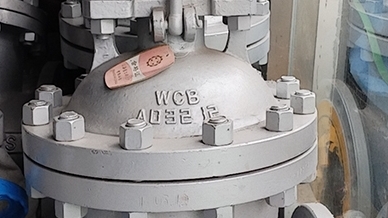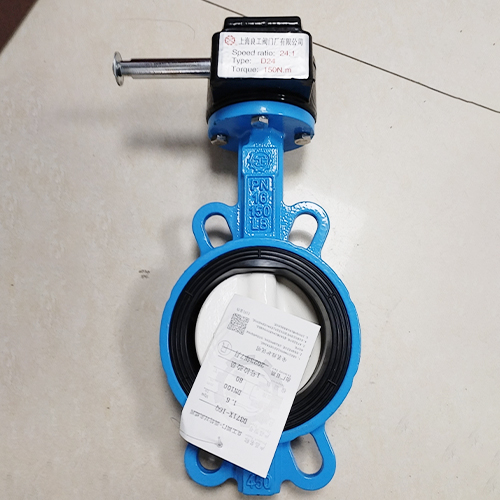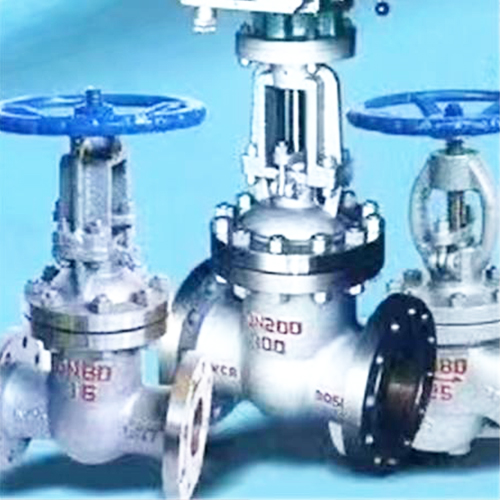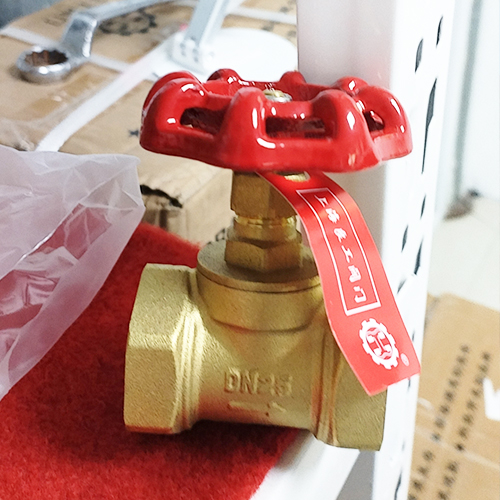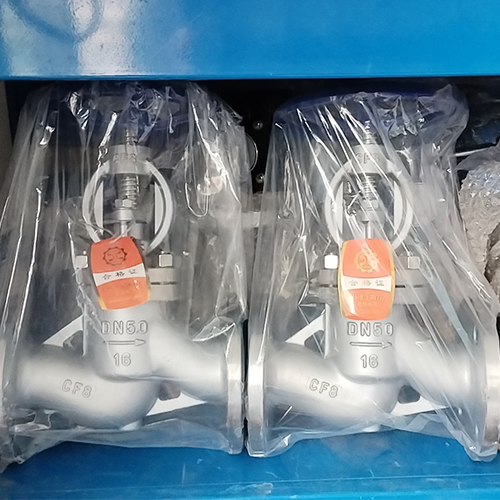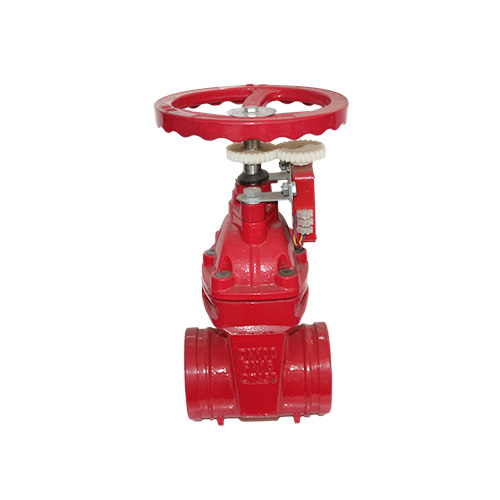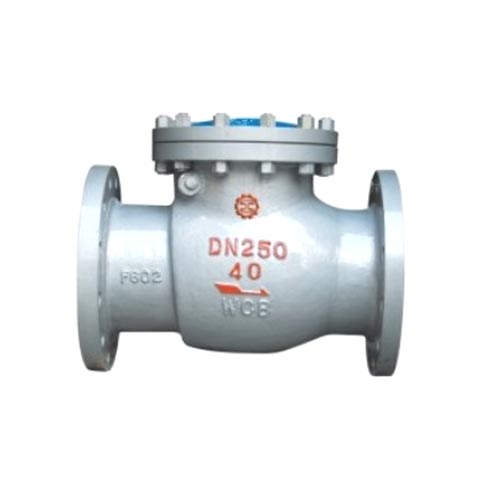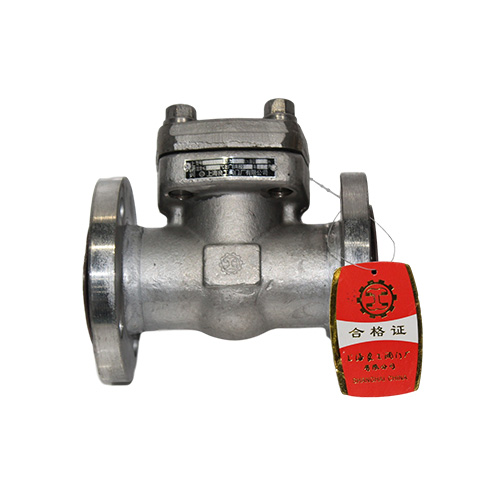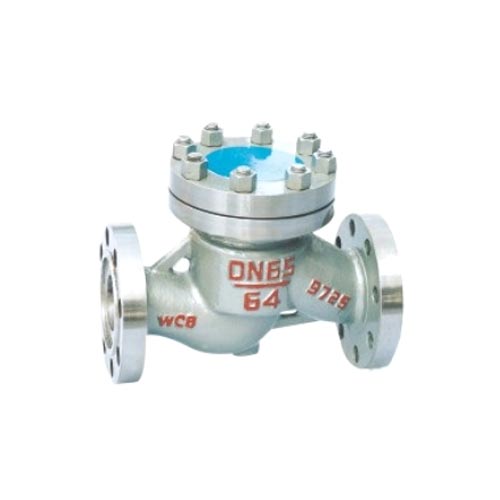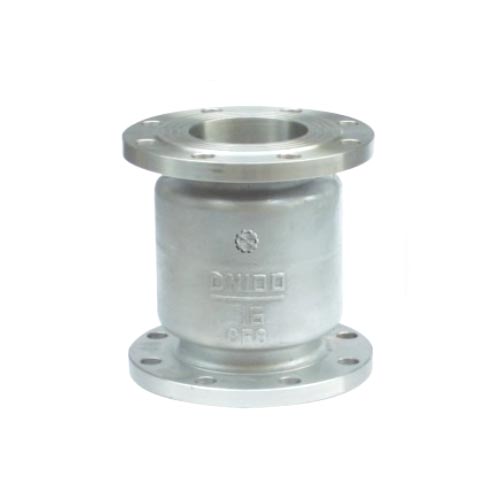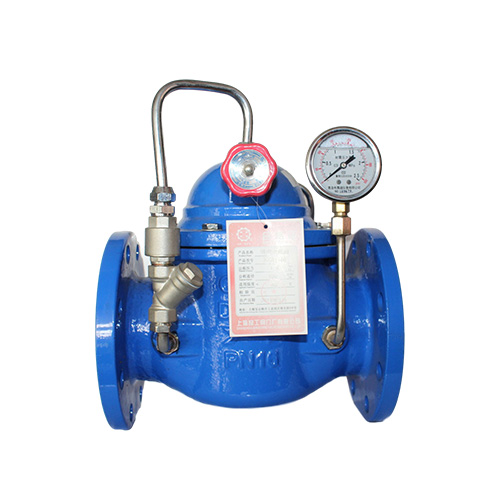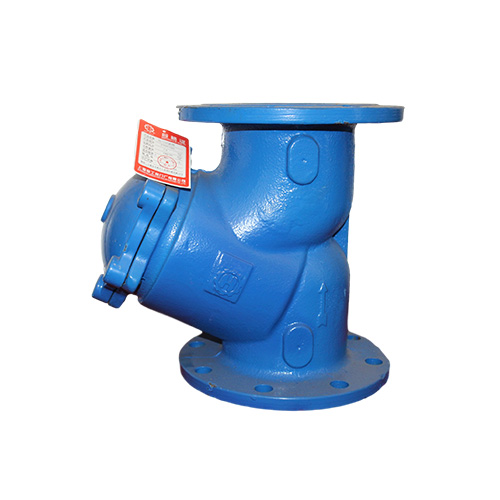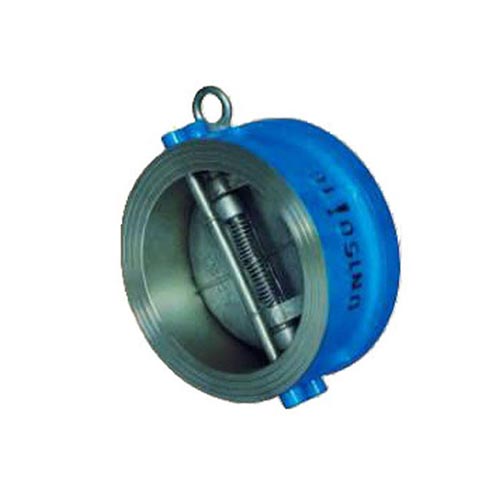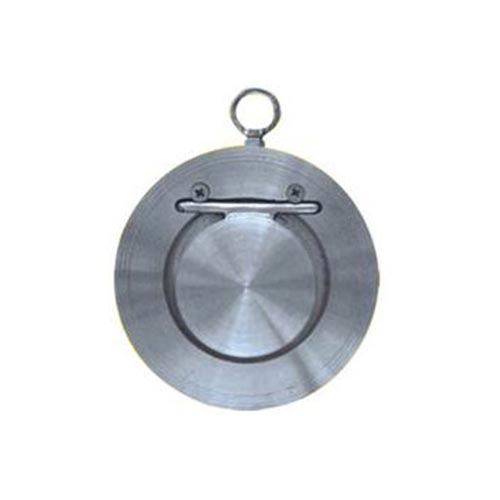1、按閘板的構造可分
1. According to the structure of the gate, it can be divided into
1)平行式閘閥:密封面與垂直線平行,即兩個密封面互相平行的閘閥。
1) Parallel gate valve: A gate valve where the sealing surface is parallel to the vertical centerline, i.e. two sealing surfaces are parallel to each other.
在平行式閘閥中,以帶推力楔塊的結構zui常為常見,既在兩閘板中間有雙面推力楔塊,這種閘閥適用于低壓中小口徑(DN40—300mm)閘閥。也有在兩閘板間帶有彈簧的,彈簧能產生予緊力,有利于閘板的密封。
In parallel gate valves, a structure with a thrust wedge is often common, with a double-sided thrust wedge in the middle of the two gate plates. This type of gate valve is suitable for low pressure small and medium-sized (DN40-300mm) gate valves. There are also those with springs between the two rams, which can generate pre tightening force and facilitate the sealing of the rams.
2)楔式閘閥:密封面與垂直線成某種角度,即兩個密封面成楔形的閘閥。
2) Wedge gate valve: A gate valve with a sealing surface at an angle to the vertical centerline, i.e. two sealing surfaces forming a wedge shape.
密封面的傾斜角度一般有2°52?,3°30?,5°, 8°, 10°等,角度的大小主要取決于介質溫度的高低。一般工作溫度愈高,所取角度應愈大,以減小溫度變化時發生楔住的可能性。
The inclination angle of the sealing surface is generally 2 ° 52 °?, 3 ° 30 °?, The angle of 5 °, 8 °, 10 °, etc. mainly depends on the temperature of the medium. The higher the working temperature, the larger the angle taken to reduce the possibility of wedging during temperature changes.
在楔式閘閥中,又有單閘板,雙閘板和彈性閘板之分。單閘板楔式閘閥,結構簡單,使用可靠,但對密封面角度的精度要求較高,加工和維修較困難,溫度變化時楔住的可能性很大。雙閘板楔式閘閥在水和蒸氣介質管路中使用較多。它的優點是:對密封面角度的精度要求較低,溫度變化不易引起楔住的現象,密封面磨損時,可以加墊片補償。但這種結構零件較多,在粘性介質中易粘結,影響密封。更主要是上、下擋板長期使用易產生銹蝕,閘板容易脫落。彈性閘板楔式閘閥,它具有單閘板楔式閘閥結構簡單,使用可*的優點,又能產生微量的彈性變形彌補密封面角度加工過程中產生的偏差,改善工藝性,現已被大量采用。
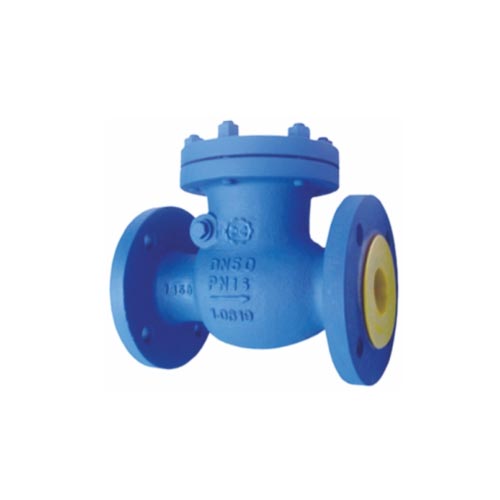
In wedge gate valves, there are three types: single gate, double gate, and elastic gate. The single gate wedge gate valve has a simple structure and reliable use, but it has a high requirement for the accuracy of the sealing surface angle, making it difficult to process and maintain. There is a high possibility of wedging during temperature changes. Double wedge gate valves are commonly used in water and steam medium pipelines. Its advantages are: low precision requirements for the sealing surface angle, less likely to cause wedging due to temperature changes, and the use of gaskets to compensate for wear on the sealing surface. But this type of structural component has many parts, which are easy to bond in viscous media and affect sealing. The main issue is that the upper and lower baffles are prone to rusting and the gate is prone to falling off after long-term use. Elastic wedge gate valve, which has the advantages of simple structure and easy use of a single wedge gate valve, and can generate a small amount of elastic deformation to compensate for the deviation generated during the sealing surface angle machining process, improving the processability, has been widely adopted.
2、按閥桿的構造閘閥又可分為
2. According to the structure of the valve stem, gate valves can be further divided into
1) 明桿閘閥:閥桿螺母在閥蓋或支架上,開閉閘板時,用旋轉閥桿螺母來實現閥桿的升降。這種結構對閥桿的潤滑有利,開閉程度明顯,因此被廣泛采用。
1) Rising stem gate valve: The valve stem nut is placed on the valve cover or bracket. When opening and closing the gate, the valve stem nut is rotated to achieve the lifting and lowering of the valve stem. This structure is beneficial for the lubrication of the valve stem and has a clear degree of opening and closing, so it is widely used.
2) 暗桿閘閥:閥桿螺母在閥體內,與介質直接接觸。開閉閘板時,用旋轉閥桿來實現。這種結構的優點是:閘閥的高度總保持不變,因此安裝空間小,適用于大口徑或對安裝空間受限制的閘閥。此種結構要裝有開閉指示器,以指示開閉程度。這種結構的缺點是:閥桿螺紋不僅無法潤滑,而且直接接受介質侵蝕,容易損壞。
2) Non rising stem gate valve: The stem nut is located inside the valve body and in direct contact with the medium. When opening and closing the gate, rotate the valve stem to achieve this. The advantage of this structure is that the height of the gate valve remains constant, so the installation space is small, making it suitable for gate valves with large diameters or limited installation space. This structure should be equipped with an opening and closing indicator to indicate the degree of opening and closing. The disadvantage of this structure is that the valve stem thread not only cannot be lubricated, but also directly accepts medium erosion, which is easy to damage.
四、閘閥的通徑收縮
4、 Shrinkage of gate valve diameter
如果一個閥體內的通道直徑不一樣(往往都是閥座處的通徑小于法蘭連接處的通徑),稱為通徑收縮。
If the diameter of the channels inside a valve body is different (often the diameter at the valve seat is smaller than the diameter at the flange connection), it is called diameter contraction.
通徑收縮能使零件尺寸縮小,開、閉所需力相應減小,同時可擴大零部件的應用范圍。但通徑收縮后。流體阻力損失增大。
Diameter shrinkage can reduce the size of parts, reduce the force required for opening and closing, and expand the application range of components. But after the diameter shrinks. The fluid resistance loss increases.
在某些部門的某些工作條件下(如石油部門的輸油管線),不允許采用通徑收縮的閥門。這一方面是為了減小管線的阻力損失,另一方面是為了避免通徑收縮后給機械清掃管線造成障礙。
Under certain working conditions in certain departments (such as oil pipelines in the petroleum department), it is not allowed to use valves with diameter shrinkage. On the one hand, this is to reduce the resistance loss of the pipeline, and on the other hand, to avoid obstacles to mechanical cleaning of the pipeline caused by diameter shrinkage.
With the summary above from Lianggong Valve Agency, we hope it can be helpful to our customers. If you have any questions or need help, please click on our website: http://m.szgotta.com.cn Or call for consultation, and we will do our best to solve it for you
 企業公告:
企業公告:

